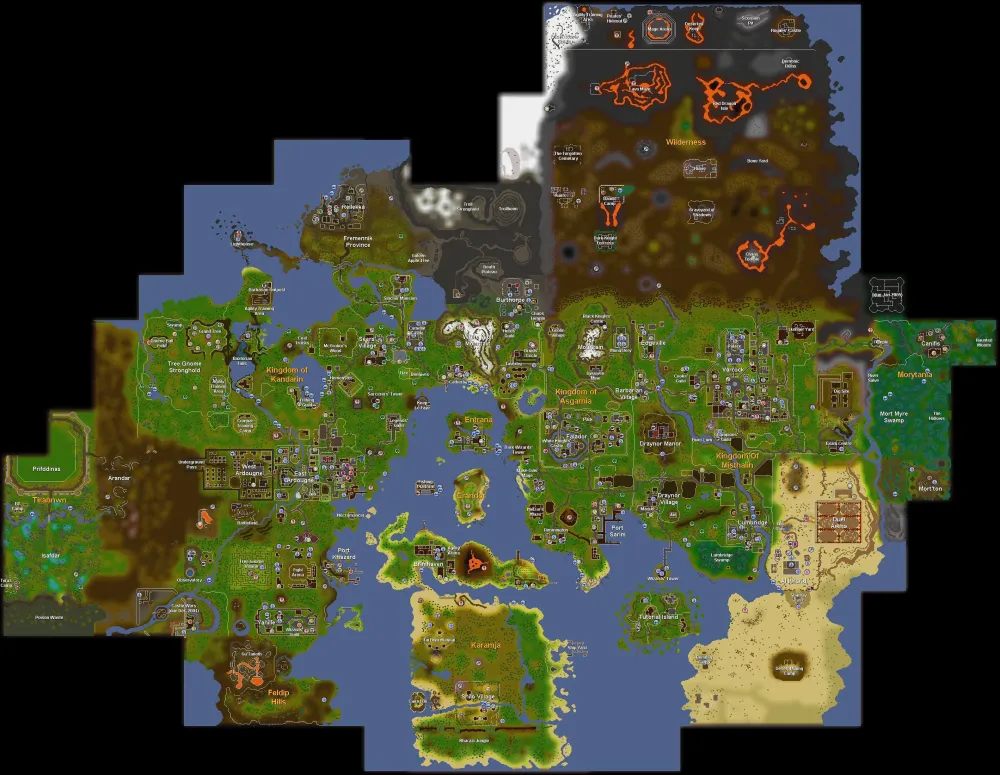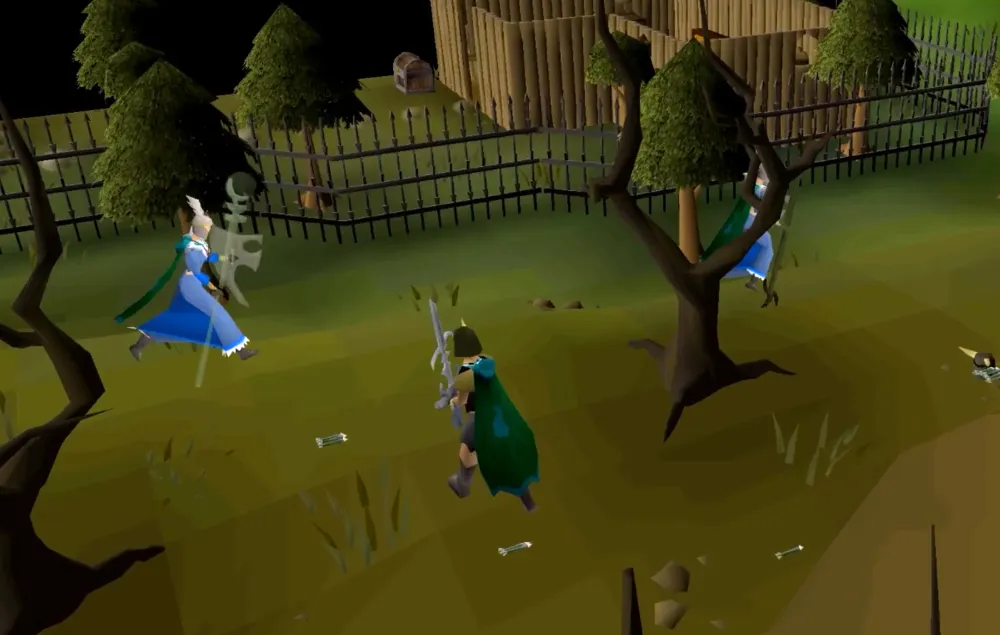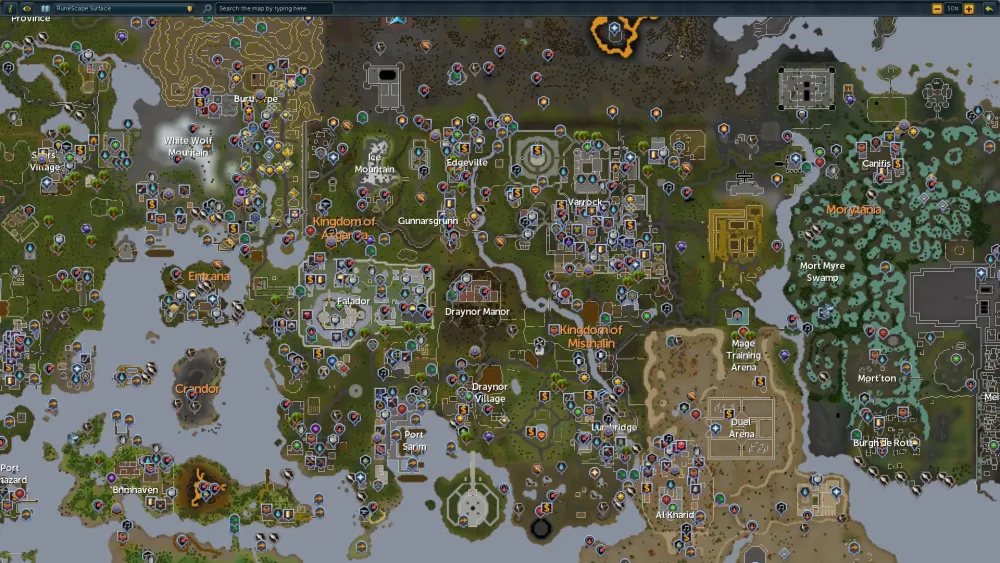Your cart is empty
Why Old School RuneScape (OSRS) Is Better Than RuneScape 3 (RS3): A Detailed Comparison

Warning: Undefined variable $post in /home/osrsmoneymaking.guide/public_html/wp-content/themes/kadence/functions.php on line 391
Warning: Attempt to read property "ID" on null in /home/osrsmoneymaking.guide/public_html/wp-content/themes/kadence/functions.php on line 391
For over two decades, RuneScape has captivated millions of players worldwide with its expansive MMORPG universe. However, the game has split into two distinct versions: Old School RuneScape (OSRS) and RuneScape 3 (RS3). While both share the same roots, they cater to different audiences with unique gameplay experiences. This blog post dives deep into why OSRS often outshines RS3, exploring nostalgia, community involvement, simplicity, and more. Whether you’re a veteran player or a newcomer, here’s why OSRS might just be the superior choice.
One of the biggest reasons OSRS stands out is its powerful nostalgic appeal. Launched in 2013 as a re-release of the 2007 version of RuneScape, OSRS taps into the memories of players who grew up with the game in its early days.
Recapturing the Golden Era
OSRS brings back the classic graphics, sounds, and mechanics that defined RuneScape’s peak popularity in the mid-2000s. The pixelated art style and iconic MIDI music evoke a sense of simpler times, resonating with players who spent hours grinding skills or trading at the Grand Exchange.
Consistency Over Modernization
Unlike RS3, which has undergone significant graphical and gameplay overhauls, OSRS maintains a consistent retro feel. While RS3’s updated visuals might appeal to some, they can feel disjointed as older areas lag behind newer ones in polish. OSRS, by contrast, offers a uniform experience that feels authentic to its origins.
Community-Driven Development

OSRS thrives on its unique approach to updates, putting the power in the hands of its players. This community-driven model sets it apart from RS3 and fosters a sense of ownership among its fanbase.
Player Polling System
In OSRS, major updates and new content must pass a player poll with at least 75% approval. This ensures that changes align with what the community wants, preserving the game’s integrity. RS3, on the other hand, relies more on developer-led decisions, which can sometimes alienate players.
Preserving the Core Experience
The polling system prevents drastic shifts like RS3’s Evolution of Combat (EoC) update, which overhauled the combat system in 2012 and drove many players away. OSRS keeps its traditional click-and-wait combat, a feature fans fought to retain.
Simplicity and Accessibility

OSRS offers a straightforward, no-frills experience that contrasts with RS3’s complexity. This simplicity makes it more approachable and rewarding for many players.
Easier Learning Curve
RS3’s modern mechanics—such as ability bars, microtransactions, and a flood of daily activities—can overwhelm new players. OSRS, with its basic interface and mechanics, is easier to pick up. You click, you fight, you skill—it’s that simple.
Grind That Feels Meaningful
While OSRS is notoriously grind-heavy, the slow progression feels more rewarding. Leveling up a skill to 99 in OSRS takes dedication, making each milestone a true achievement. RS3’s faster XP rates and microtransaction boosts can cheapen this sense of accomplishment.
Key Differences in Accessibility:
- OSRS: Simple mechanics, no microtransactions beyond bonds, grind-focused.
- RS3: Complex combat, microtransaction-heavy, faster progression.
Stronger PvP and Social Scene
For players who love player-versus-player (PvP) combat and social interaction, OSRS delivers a richer experience than RS3. Its wilderness and PvP worlds remain a cornerstone of the game.
Thriving Wilderness PvP
The OSRS wilderness is a hotspot for PvP action, drawing crowds for its high-risk, high-reward gameplay. RS3’s PvP scene, by comparison, has dwindled, with most players focusing on PvM (player-versus-monster) content instead.
Grand Exchange Vibes
The Grand Exchange in OSRS buzzes with activity, reminiscent of RuneScape’s heyday. Players trade, chat, and flex their rare items, creating a lively social hub. RS3’s version, while functional, lacks the same energy and community feel.
Clan and Group Dynamics
OSRS’s simpler mechanics make it easier for clans to organize and dominate PvP or bossing events. RS3’s intricate systems can complicate group play, leaving OSRS as the go-to for social gamers.
Better Long-Term Value
OSRS offers a more sustainable and satisfying long-term experience, thanks to its design philosophy and lack of pay-to-win elements.
No Pay-to-Win Pressure
RS3’s microtransactions, like Treasure Hunter keys and XP boosts, give paying players a clear advantage. OSRS limits this to bonds (which can be earned in-game), leveling the playing field and rewarding effort over wallet size.
Endgame That Stays Relevant
While RS3 boasts impressive boss fights, its power creep and frequent updates can render old content obsolete. OSRS’s endgame—think Theatre of Blood or Inferno—remains challenging and relevant, with rewards like the Twisted Bow holding lasting value.
| Feature | OSRS | RS3 |
|---|---|---|
| Combat System | Traditional, click-based | Ability-based (EoC) |
| Microtransactions | Bonds only | Extensive (keys, boosts) |
| XP Rates | Slower, grind-heavy | Faster, event-driven |
| PvP Focus | Strong, wilderness active | Weak, PvM dominant |
| Community Input | Polling system | Developer-led |
Why OSRS Wins Long-Term: Its focus on player effort, community governance, and timeless content ensures it stays engaging without relying on constant reinvention.
In the debate of OSRS vs. RS3, it’s clear that Old School RuneScape holds a special edge for many players. Its nostalgia, community-driven updates, simplicity, vibrant PvP scene, and fair progression system make it a standout choice. While RS3 has its merits—better graphics, more quests, and advanced bossing—it often feels like a different game entirely, one that sacrifices RuneScape’s original charm for modernization. If you value a classic MMORPG experience where every achievement feels earned and the community shapes the journey, OSRS is the way to go. Try it out, relive the past, and see why it continues to thrive in 2025.
Warning: Undefined variable $post in /home/osrsmoneymaking.guide/public_html/wp-content/themes/kadence/functions.php on line 391
Warning: Attempt to read property "ID" on null in /home/osrsmoneymaking.guide/public_html/wp-content/themes/kadence/functions.php on line 391

